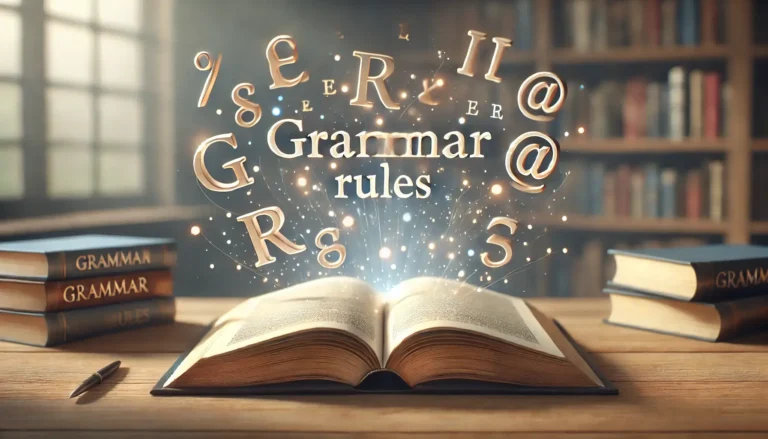The topic on Contrast is very important for high school students in Zambia because there are always exam questions on this topic. Additionally, conveying contrasting information in writing is essential for expressing differences, opposing ideas, or unexpected outcomes.
Conjunctions such as “despite,” “much as,” and “whereas” are effective tools for this purpose. In this expanded essay, we will explore a variety of these conjunctions, providing examples to illustrate how they can be used to create more nuanced and complex sentences.
Expressing Contrast
But/However
However is a formal conjunction often used to introduce a contrast between two separate sentences. It is flexible and can be placed at the beginning, middle, or end of the sentence.
Examples:
- I love Alice Springs. However, the roads are too narrow. (The contrast is emphasized right away.)
- I love Alice Springs. The roads, however, are too narrow. (The contrast is introduced after the subject, placing a slight pause for emphasis.)
- I love Alice Springs. The roads are narrow, however. (The contrast is stated at the end, summarizing the thought.)
In contrast, but is a more informal way to show contrast and is commonly used in everyday conversation. Unlike “however,” it is usually placed in the middle of the sentence to connect two independent clauses.
Examples:
- I love Alice Springs. But the roads are too narrow. (Informal and direct.)
- I love Alice Springs, but the roads are too narrow. (Combines the sentences for a smoother flow.)
Yet
Yet is a conjunction that expresses an idea surprising or contradictory to what has been mentioned earlier. It adds a layer of complexity to the contrast.
Examples:
- I helped my mother, yet she betrayed me. (The outcome is unexpected given the prior action.)
- He’s already 100 years old, yet somehow, he is still fit and healthy. (The contradiction emphasizes the surprising nature of the statement.)
In Spite of and Despite
Both in spite of and despite are used to show that something happened even though there were obstacles or adverse conditions. These conjunctions are followed by a noun phrase or the -ing form of a verb.
Examples:
- We arrived on time in spite of missing the train. (The arrival was timely despite the setback.)
- Their restaurant succeeded despite the bad reviews. (Success occurred against the odds.)
For a more formal expression, in spite of the fact that and despite the fact that can be used, followed by a subject and verb.
Examples:
- We arrived on time, in spite of the fact that we missed the train. (A complete clause is used to express the contrast.)
- Their restaurant succeeded, despite the fact that they received bad reviews. (The contrast highlights the unexpected success.)
Although, Though, and Even Though
These conjunctions are used to introduce a contrasting idea within a single sentence. Although, though, and even though serve similar purposes, with even though being more emphatic.
Examples:
- Although Kaemba lost the election, many more people voted for her than the first time. (The increase in votes contrasts with the loss.)
- I love my Bemba conversation class, though I struggled at first. (The struggle contrasts with the eventual appreciation.)
- Even though my team lost, it was great to be in the stadium for the final. (The experience was positive despite the loss.)
Though can also be placed at the end of a sentence for a more casual tone.
Example:
- I didn’t know anyone when I first got to uni. I soon made friends, though. (The contrast is understated and informal.)
Even If
Even if introduces a contrast by suggesting that the outcome would be the same regardless of the circumstances.
Examples:
- Even if you are an expert swimmer, you should be careful at this beach. (The caution remains despite expertise.)
While, Unlike, and Whereas
While is commonly used to indicate a time contrast but can also be used to compare opposing ideas.
Example:
- While I made some mistakes in my driving exam, I still passed. (The success is highlighted despite the errors.)
Whereas and while can be used interchangeably when comparing two contradictory ideas.
Examples:
- While/Whereas Ivan is very sociable, his brother is more reserved. (The difference between the two brothers is emphasized.)
- My trip home was quick and easy, whereas/while my colleagues were delayed for hours. (The contrast between the two experiences is stark.)
Unlike is used to contrast nouns directly.
Example:
- Unlike Michael, Miguel excels in performing arts. (The talents of the two individuals are contrasted.)
On the Other Hand
On the other hand is used to introduce a different perspective or an alternative way of looking at the same situation.
Examples:
- On one hand, I want to be an engineer. But on the other hand, I also like my current education degree. (The speaker is torn between two paths.)
- I enjoy jazz music, but on the other hand, my friend loves rock music. (The contrasting musical preferences are highlighted.)
Conclusion
In conclusion, using conjunctions like “despite,” “much as,” and “whereas” allows for the expression of complex contrasts. These tools help convey opposing ideas, highlight differences, and provide a deeper understanding of relationships between thoughts or events.







